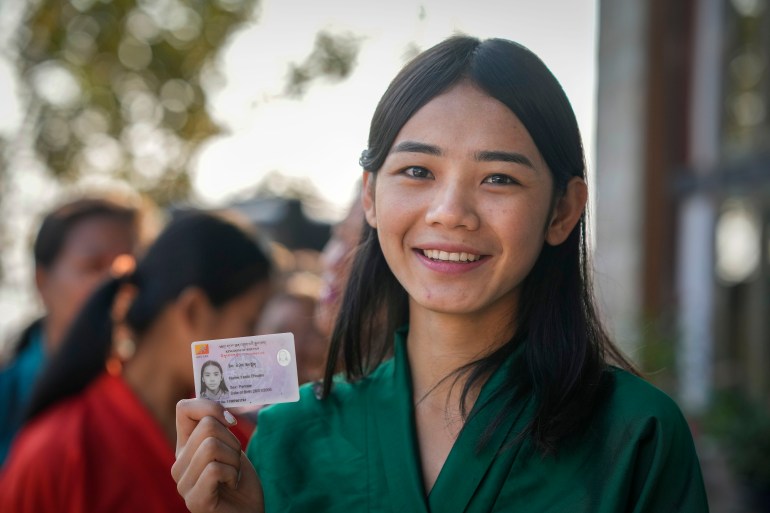Nearly half a million voters are eligible to choose 47 members of parliament or from among 94 candidates.
Voters headed to the polls on Tuesday as they opened at 8am (02:00 GMT), in an election focused on economic growth and opportunity, despite the country’s use of a “Gross National Happiness” index in place of gross domestic product (GDP).
Approximately half a million voters can select 47 members of parliament from a pool of 94 candidates presented by the Bhutan Tendrel Party (BTP) and People’s Democratic Party (PDP). The latter secured victory in a primary round in November. Polls will close at 5pm (11:00 GMT), with results expected on Wednesday.
“The most important thing the Bhutanese people need is economic growth and the growth of their own,” Karma, 49, a voter from Punakha, near Thimphu, told Reuters news agency.
“Many people are unemployed and even those who have jobs get salary that is not enough to support the growth of their family.”

Young citizens searching for better financial and educational opportunities have left in record numbers since the last election, with Australia as their top destination.
About 15,000 Bhutanese were issued visas there in the 12 months before July 2022, according to a local news report – more than the preceding six years combined, and equal to almost 2 percent of the kingdom’s population.
Nestled between China and India, the majority-Buddhist nation ushered in democracy with its first free vote in 2008, two years after former king, Jigme Singye Wangchuck, abdicated in favour of his Oxford-educated son Jigme Khesar Namgyel Wangchuck.
‘Unprecedented economic challenges’
Both parties contesting Tuesday’s vote are committed to a constitutionally enshrined philosophy of a government that measures its success by the “happiness and wellbeing of the people”.
But the economy and the need to stem emigration are playing a major role in a country roughly the size of Switzerland but with a population of less than 800,000.
Career civil servant Pema Chewang, 56, leader of the BTP, has warned that the country is losing the “cream of the nation”.
His opponent, former prime minister and PDP chief, Tshering Tobgay, 58, has sounded the alarm over Bhutan’s “unprecedented economic challenges and mass exodus”.
The PDP manifesto cited government statistics showing that one in every eight people were “struggling to meet their basic needs for food” and other necessities.
Both political parties have comparable election platforms, committing to enhancing the $3bn economy. Despite lifting pandemic restrictions in September 2022, the nation, heavily dependent on aid and tourism, has struggled to revive these sectors.
The two parties seemed aligned on exploring the country’s hydroelectric power potential, fostering agricultural growth, and mitigating climate change risks in the world’s first carbon-negative country.
Both parties promise to encourage investment and bolster foreign exchange reserves. As of the end of October, the central bank reported reserves at $464.66m, a sharp decline from $759.16m a year earlier.
Analysts said their promises should be taken with a pinch of salt, and few believed the parties would deliver on their promises if elected.
“People now tend to be sceptical about promises the political parties make, as they have seen that many (past) promises remained unfulfilled,” political analyst Sonam Tshering told Reuters.
In the three elections since 2008, no party has headed the government twice.
Political parties are “also aware that Bhutanese voters are much matured and discreet about whom they vote so that their votes remain secret”, Tshering said.
BTP was formed in 2022 and is led by a former bureaucrat. PDP was founded in 2007 by Tshering Tobgay, who led the government after the elections in 2013.
